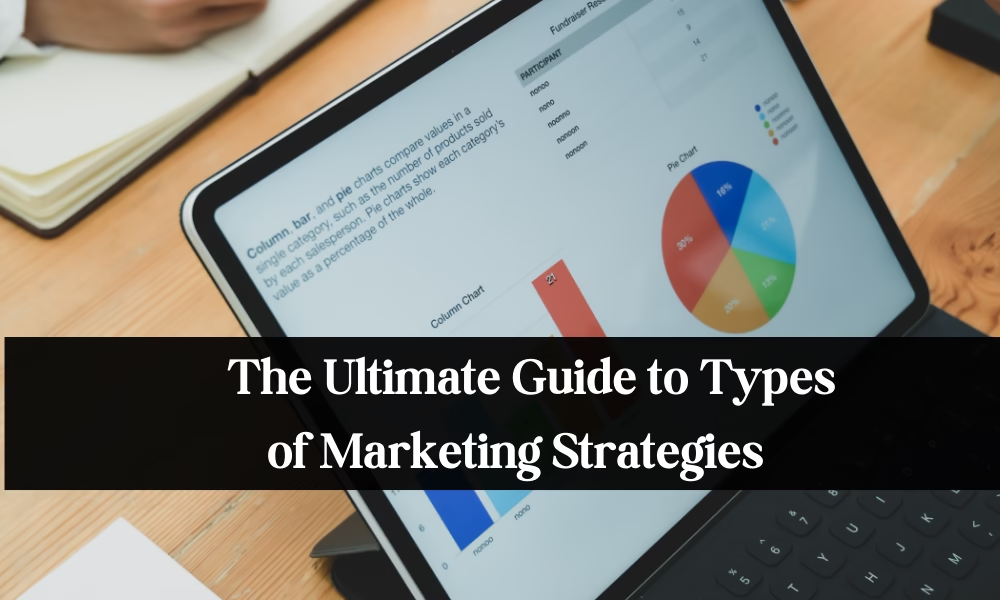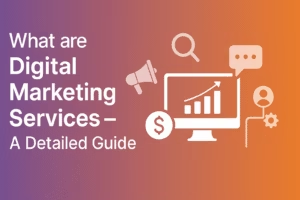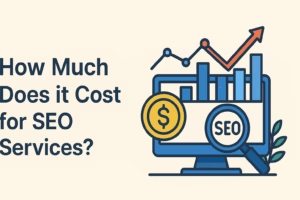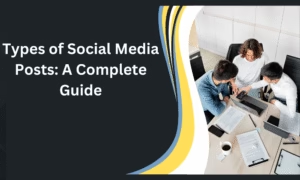In today’s rapidly evolving business environment, understanding the different types of marketing has become crucial for sustainable success. Furthermore, with over 93% of businesses now competing in the digital space and consumers exposed to thousands of marketing messages daily, selecting the right marketing approach types can determine whether your business thrives or struggles to survive.
Whether you’re a startup establishing your brand identity or an established company exploring various types of marketing for expansion, this comprehensive guide will explore 15 powerful types of marketing strategies that can transform your business outcomes. Additionally, we’ll examine proven marketing strategies examples and provide actionable insights for implementing these marketing methods effectively.
Understanding Marketing Strategies: The Foundation of Business Success
A marketing strategy represents a comprehensive blueprint designed to promote products or services, engage target audiences, and achieve specific business objectives. Moreover, unlike random promotional activities, strategic marketing planning involves careful audience research, systematic execution, and continuous optimization to maximize return on investment.
Different types of strategies serve multiple critical purposes in today’s competitive landscape:
- Building sustainable brand awareness and market recognition
- Developing stronger customer relationships and fostering loyalty
- Establishing a distinct competitive advantage in crowded markets
- Generating qualified leads and improving conversion rates
- Supporting long-term business growth and market expansion
Consequently, the key to successful marketing lies in recognizing that various types of marketing work differently across industries, audiences, and objectives. What proves effective for a B2B software company may not resonate with a local restaurant’s audience, which is precisely why understanding the complete spectrum of available marketing approaches becomes essential.
Make a lasting impression with fast, reliable, and affordable printing services tailored for your business.
Traditional Marketing Approaches: Time-Tested Marketing Methods
1. Print Marketing Strategy
Despite the digital transformation, print marketing continues delivering value for specific demographics and industries. This marketing approach includes newspapers, magazines, brochures, and direct mail campaigns. Notably, print advertisements demonstrate particular effectiveness for:
- Local businesses targeting mature demographics
- Luxury brands requiring premium presentation
- Professional services and real estate sectors
- Event promotion and community announcements
2. Broadcast Marketing Excellence
Television advertising and radio marketing continue offering extensive reach and powerful brand visibility. Meanwhile, modern broadcast marketing has evolved to encompass:
- Targeted advertising on streaming platforms
- Strategic podcast sponsorships and partnerships
- Connected TV advertising for precise targeting
- Radio show collaborations and brand partnerships
3. Outdoor Advertising Impact
Billboard marketing, transit advertisements, and other outdoor marketing methods provide consistent brand exposure. Similarly, contemporary outdoor marketing incorporates digital billboards, vehicle wraps, and location-based advertising that proves particularly effective for local businesses seeking community engagement.
Digital Marketing Strategies: Modern Marketing Methods for Maximum Impact
4. Search Engine Optimization Mastery
SEO remains among the most cost-effective digital marketing strategies available today. By optimizing website content for search engines, businesses attract high-intent visitors actively searching for their offerings. Furthermore, effective SEO strategies encompass:
- Comprehensive keyword research and strategic optimization
- Technical SEO enhancements for better performance
- Content optimization aligned with user intent
- Local SEO for location-based business visibility
Research indicates that 70% of online marketers consider SEO more effective than PPC advertising for generating sustainable sales, making it indispensable for long-term online presence.
5. Pay-Per-Click Advertising Success
PPC campaigns deliver immediate visibility and measurable results across multiple platforms. With Google Ads, Facebook advertising, and LinkedIn marketing, businesses can:
- Target specific demographics and interests precisely
- Control advertising budgets with complete transparency
- Track conversion rates and ROI in real-time
- Generate qualified leads quickly for new products
The average PPC campaign generates a remarkable 200% return on investment, making it highly effective for businesses seeking rapid, measurable results.
6. Social Media Marketing Excellence
With 71% of small-to-mid-sized businesses utilizing social media marketing, this strategy has become absolutely essential. Effective social media strategies include:
- Platform-specific content creation and optimization
- Community building and authentic audience engagement
- Strategic social media advertising campaigns
- Influencer partnerships and collaborative marketing
Popular platforms including Facebook, Instagram, LinkedIn, Twitter, TikTok, and YouTube each serve distinct audience segments and content preferences, requiring tailored marketing approaches.
7. Content Marketing Strategy
Content marketing focuses on creating valuable, educational material that attracts and retains targeted audiences. This comprehensive strategy includes blog posts, videos, infographics, podcasts, and whitepapers. Successful businesses implementing strategic content creation understand that quality content serves as the foundation for building trust and authority in their respective industries.
When companies develop comprehensive content strategies that address their audience’s specific pain points while providing genuine value, they establish themselves as trusted thought leaders. This approach naturally improves search engine rankings, generates qualified organic traffic, and builds lasting customer relationships without appearing overly promotional.
8. Email Marketing Effectiveness
Despite being among the oldest digital channels, email marketing maintains exceptional effectiveness, with 89% of marketers utilizing it as their primary lead generation method. Moreover, modern email marketing campaigns incorporate:
- Segmented email lists for enhanced personalization
- Automated email sequences for systematic nurturing
- Newsletter marketing for consistent audience engagement
- A/B testing methodologies for continuous optimization
Specialized Marketing Approaches for Targeted Results
9. Influencer Marketing Impact
Influencer marketing leverages individuals with established credibility and followings to promote products or services authentically. This evolving strategy now includes:
- Micro-influencer collaborations (1K-100K followers)
- Nano-influencer partnerships (under 1K followers)
- Celebrity endorsements for mass market appeal
- Employee advocacy programs for authentic promotion
Research demonstrates that influencer marketing yields $5.20 to $6.50 for every dollar invested, making it particularly effective for reaching younger demographics and building brand trust.
10. Affiliate Marketing Networks
Affiliate marketing creates performance-based partnerships where affiliates earn commissions for generating sales or qualified leads. This marketing method works exceptionally well for:
- E-commerce businesses seeking broader distribution channels
- Software companies offering recurring revenue opportunities
- Service businesses expanding their sales capabilities
- Product launches requiring rapid market penetration
11. Referral Marketing Power
Referral marketing encourages existing customers to recommend products or services to their networks. This includes word-of-mouth marketing and structured customer referral programs. The effectiveness of referrals stems from the inherent trust factor – people demonstrate significantly higher purchase likelihood based on recommendations from friends and family members.
Advanced Marketing Strategies for Competitive Advantage
12. Behavioral Marketing Precision
Behavioral marketing utilizes data analytics to target customers based on their actions rather than traditional demographics. Companies like Amazon and Netflix excel at this approach through:
- Analyzing comprehensive user engagement patterns
- Creating highly personalized recommendations
- Timing messages based on specific customer behavior
- Optimizing complete customer journey experiences
13. Conversational Marketing Innovation
Conversational marketing builds meaningful relationships through real-time interactions utilizing:
- AI-powered chatbots for instant customer responses
- Live chat support for immediate assistance
- WhatsApp marketing for personal communication channels
- Interactive content designed for enhanced engagement
14. Event Marketing Experiences
Event marketing creates memorable, impactful experiences through conferences, webinars, trade shows, and educational workshops. This marketing approach excels at:
- Building personal connections with qualified prospects
- Demonstrating products or services through direct interaction
- Generating high-quality leads in concentrated timeframes
- Establishing thought leadership within specific industry segments
15. Partnership Marketing Collaboration
Partnership marketing involves collaborating with complementary businesses to achieve mutual business goals. This includes:
- Co-branding initiatives for shared benefit
- Joint marketing campaigns to share costs and audiences
- Strategic alliances for market expansion
- Cross-promotional activities for increased reach
Selecting Optimal Marketing Methods for Your Business
Choosing the most effective different types of marketing requires careful evaluation of several critical factors:
Target Audience Analysis
Understanding your audience demographics, preferences, and behaviors proves crucial for success. Younger audiences typically respond better to social media marketing and influencer partnerships, while professional audiences often prefer email marketing and LinkedIn advertising. Therefore, comprehensive audience research forms the foundation of successful marketing strategy selection.
Content Considerations and ROI
Different types of strategies require varying investment levels and timeframes. Businesses looking to build long-term authority often benefit from comprehensive content marketing approaches that typically demand more upfront time investment but offer substantial long-term benefits, while PPC advertising provides immediate results requiring ongoing budget allocation. Consequently, understanding your available resources helps determine the most suitable marketing mix.
Business Goals Alignment
Your selected strategies must align perfectly with specific objectives:
- Brand awareness: Focus on social media marketing, strategic content creation, and PR efforts
- Lead generation: Prioritize SEO, PPC, and email marketing campaigns
- Customer retention: Emphasize email marketing, referral programs, and loyalty initiatives
- Sales conversion: Implement retargeting campaigns, landing page optimization, and conversion rate optimization
Industry and Competition Analysis
Research your competitors’ marketing approaches to identify market opportunities and gaps. Tools for competitor analysis can reveal which strategies are oversaturated and which present untapped potential for your business growth.
Creating an Integrated Marketing Strategy
The most successful businesses don’t rely on single marketing tactics but instead create integrated approaches leveraging multiple strategies simultaneously. This omnichannel marketing approach ensures consistent brand messaging across all touchpoints while maximizing overall campaign impact.
Marketing Funnel Integration
Effective types of marketing strategies should address all stages of the customer journey:
- Awareness Stage: Strategic content development, SEO, and social media marketing
- Consideration Stage: Email nurturing, retargeting, and educational content delivery
- Decision Stage: Customer testimonials, case studies, and targeted offers
- Retention Stage: Loyalty programs, referral systems, and ongoing engagement
Cross-Channel Consistency
Ensure your brand messaging, visual identity, and value proposition remain consistent across all marketing channels. This builds stronger brand recognition and trust while reinforcing your unique selling proposition in the marketplace.
Measuring Marketing Strategy Success
Successful marketing strategy implementation requires continuous monitoring and optimization. Key performance indicators (KPIs) to track include:
Traffic and Visibility Metrics
- Organic traffic growth from SEO efforts
- Social media engagement rates and reach expansion
- Brand mention frequency and sentiment analysis
- Website conversion rates across different channels
Lead Generation and Conversion Metrics
- Lead quality and quantity by traffic source
- Customer acquisition cost (CAC) by channel
- Conversion rates at each funnel stage
- Return on marketing investment (ROMI)
Long-term Business Impact
- Customer lifetime value (CLV) improvements
- Brand awareness and recognition growth
- Market share expansion in target segments
- Revenue attribution to specific marketing efforts
Future Trends in Various Types of Marketing
As technology continues evolving rapidly, new marketing approaches are emerging:
Artificial Intelligence in Marketing
AI marketing tools are revolutionizing customer targeting, content personalization, and campaign optimization. AI-powered chatbots, predictive analytics, and automated content creation are becoming standard tools for competitive businesses seeking scalability.
Voice Search Optimization
With the rise of smart speakers and voice assistants, optimizing for voice search queries is becoming crucial for local SEO and customer discovery. This represents a significant shift in how consumers find businesses and products.
Get noticed online with a powerful SEO service that drives traffic and boosts conversions.
Augmented Reality and Virtual Reality
AR and VR technologies create immersive brand experiences, proving particularly effective for retail, real estate, and education industries seeking innovative customer engagement methods.
Sustainability and Social Responsibility Marketing
Modern consumers increasingly prefer brands demonstrating environmental responsibility and social impact. Incorporating these elements into your marketing messaging can significantly improve brand perception and customer loyalty.
The Bottom Line!
Understanding the different types of marketing represents just the first step toward sustainable business growth. The key to success lies in selecting the optimal combination of strategies that align with your business objectives, target audience, and available resources.
Whether you focus on traditional approaches like print advertising and broadcast marketing, embrace digital strategies such as SEO and social media marketing, or explore advanced techniques like behavioral marketing and AI-powered campaigns, the most important factor remains consistent execution and continuous optimization.
Remember that effective marketing isn’t about implementing every available strategy, but rather about choosing the right marketing mix that creates maximum impact for your specific situation. Start with 2-3 core types of marketing strategies, master their execution, then gradually expand your marketing approach types as you grow and learn what works best for your business.
For businesses seeking to accelerate growth through strategic implementation, understanding how quality content serves as the foundation for most successful digital marketing efforts becomes crucial. Professional content marketing services help businesses recognize that valuable, consistently delivered content naturally supports SEO, social media marketing, email campaigns, and lead generation simultaneously, creating more efficient and effective marketing strategies.
Transform your marketing approach with proven strategies that deliver measurable results. Discover how integrated marketing methodologies can drive sustainable business growth while maximizing your investment across multiple channels.








